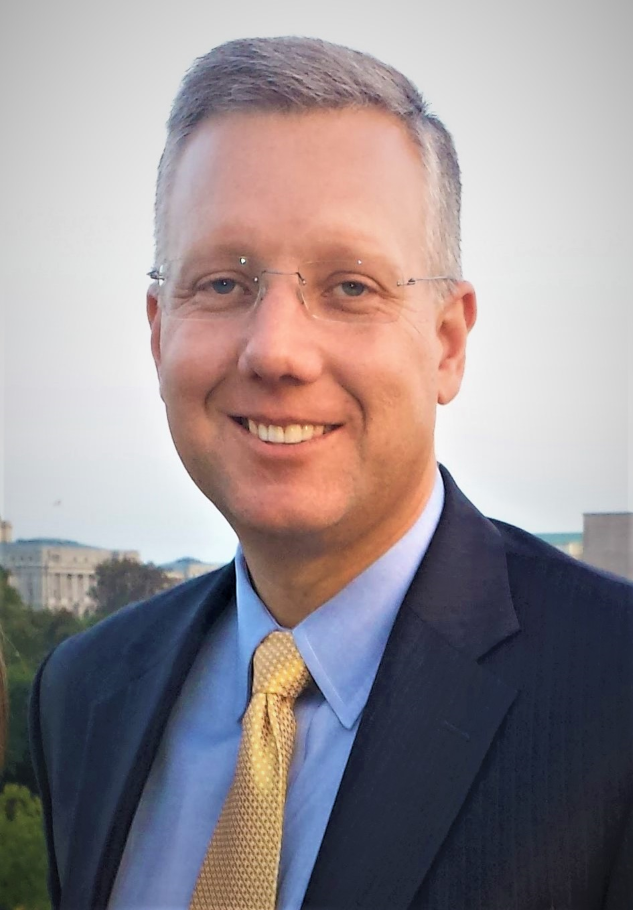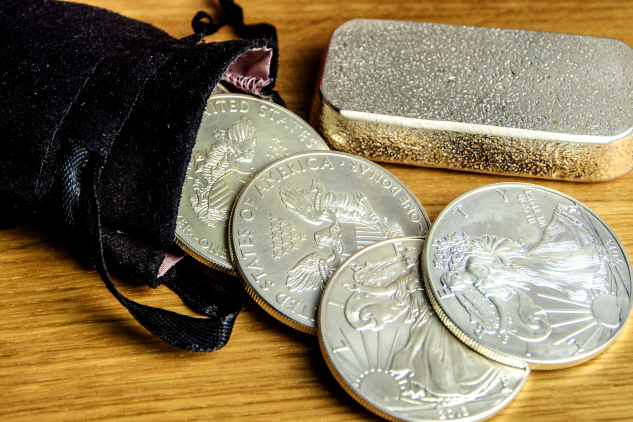Features

Having spent his last 14 years building what is now one of the largest precious metals dealers and depositories in America, Stefan Gleason (Florida) spends his days helping investors hedge themselves against the tides of inflation and economic uncertainty.
As the founder of Money Metals Exchange, an online dealer that buys, sells, stores, and even lends against gold, silver, platinum, and palladium, Gleason provides options for people who want more control over their financial strategies.
"I think everyone should have some assets outside of the traditional financial system of dollar-denominated securities and bonds where there's counterparty risk," explained Gleason, who resides in Charlotte, N.C., with his wife and two sons.
The demand for gold and silver is booming – especially in light of political and economic disruptions since 2020 which helped drive gold to an all-time high over $2,100 per ounce.
Money Metals Exchange was founded back in 2010 as the nation emerged from the Great Recession. The company has grown to over 100 employees and 500,000 customers -- and is approaching $1 billion in annual sales.
Building the Largest Gold Depository in the Western U.S.
This spring, Money Metals is putting the finishing touches on its second building - a 37,000 square feet facility which includes 9,000 square feet of ultra-secure vault space.
Located in Idaho’s Treasure Valley, Money Metals Depository is the largest precious metals depository in the Western United States and is more than twice the size of the U.S. Bullion Depository at Fort Knox.
The investment world has taken notice. Money Metals Exchange was named "The Best Online Gold Dealer for 2023" by Investopedia, a prominent financial advisory service headquartered in New York City.
Gleason did not aim for a career in the financial sector. At the University of Florida, he was an engineering major before switching to political science as he became increasingly interested in public policy and government actions.
"What drove me into public policy is my conservative free-market belief system [and my belief] in limited government, less regulation, and low taxes," said Gleason, who grew up in northern California before heading to Gainesville, Florida.
His ideal world is one where government intervention into the economy is limited, and individual freedoms are abundant and fully protected.
Gleason's leadership experience in Sigma Nu, where he served two years as chapter Commander, influenced his dislike of government interference in what should be individual decisions.
He grew frustrated by college administrators who too often meddled in the ability of groups, especially fraternities, to manage their own affairs. He was especially concerned with the mindset of college administrators who sought to impose their controversial worldview on impressionable students.
"I got a close-up look at coercive government," he explained. "That caused me to become interested in a career in public policy and developing the skills for political campaigning, building organizations, fundraising, and media."
Passion for Public Policy Led to Sound Money Issue
After graduation, Gleason landed in Washington, D.C. He initially worked for Americans for Tax Reform, advocating for lower and flatter taxes, then with the National Right to Work Legal Defense Foundation. There he helped fight union corruption and violence, mandatory union membership, and other union special privileges enshrined in state and federal laws.
Gleason's interest in the world of finance and economics developed over the years as he began investing, owning real estate, and learning about what influences the market and interest rates.
"That led me to look into the Federal Reserve System and how it seeks to centrally plan the economy through monetary policy… arrogantly managing currency by turning 'dials,'" Gleason said.
He knew today’s monetary system is contrary to the founding principles of the United States, which included a gold and silver standard that defined the “dollar” as equivalent to 371.25 grains of silver or 24.75 grains of gold.
In 1971, Gleason explained, the U.S. government dropped the last vestiges of the gold standard, leaving currency backed only by government promises… and setting off a wave of government spending, inflation, and debt.
"Today, there's no gold or silver in the monetary system," Gleason said. "Instead of sound money, we have political money managed by the Federal Reserve and other central banks. This top-down system has fostered financial instability and a dramatic devaluation of the dollar’s purchasing power."
Brothers Teamed Up, Now Lead Their Industry
In 2009, Gleason went into business with a friend who published a national newsletter on personal self-reliance and alternative investment strategies. As an incentive, new subscribers were given an ounce of silver, which proved to be a huge draw.
"People were concerned about inflation, government debt, economic disruption," Gleason said. "We were providing ideas of how to personally protect their assets."
He founded Money Metals Exchange a year later, recruiting his skilled younger brother Mike (also a Sigma Nu at Florida) and their entrepreneurial brother-in-law, Clint Siegner. Money Metals’ target customer was the investor who wants to diversify into hard assets and avoid an overly "dollar-centric" portfolio.
Gold and silver were gaining interest at the time, and Gleason was concerned with "bait and switch" tactics in this sector, especially by those that advertise heavily on television.
Such dealers hire celebrities and influencers to help them sell “rare,” commemorative, and “proof” gold and silver coins at prices astronomically above their melt value, i.e. the market value of the actual gold and silver contained.
"There's a whole industry around collectible coins… and there's some value there for people who know what they're doing," Gleason explained. "But for the average investor who just wants to own gold and silver as an investment, they should absolutely stay away from all that stuff."
He recommends instead buying bullion items, especially bars and rounds priced transparently and near the global price of the metal, and making it part of a diverse investment strategy.
Gleason also advises investors to reject "normalcy bias" in thinking everything returns to the way it was in the past and to be skeptical of "expert" advice.
"In the last few years, people have increasingly questioned the conventional wisdom from the supposed experts," Gleason said. "That's a good thing because these folks often have their own agendas, and people would be well served to do more investigation on their own."

The Lessons of Sigma Nu
Now 33 years since he pledged Sigma Nu at Florida, Gleason said the life lessons he learned in his college years shaped who he is today.
He appreciates the Fraternity's core values – the integrity of its founders and the focus on non-hazing. That translated to the importance of maintaining high ethics in all business dealings and relationships in general.
Gleason believes the biggest takeaway of this fraternity experience, though, was learning the skills of relationship building, conflict resolution, and working towards common goals.
"When I entered the workforce after graduation, I already understood dynamics of organizations and how to work with people I didn't agree with or necessarily like," he admits. "I think being a part of Sigma Nu made me far more prepared and successful as I launched into my career."